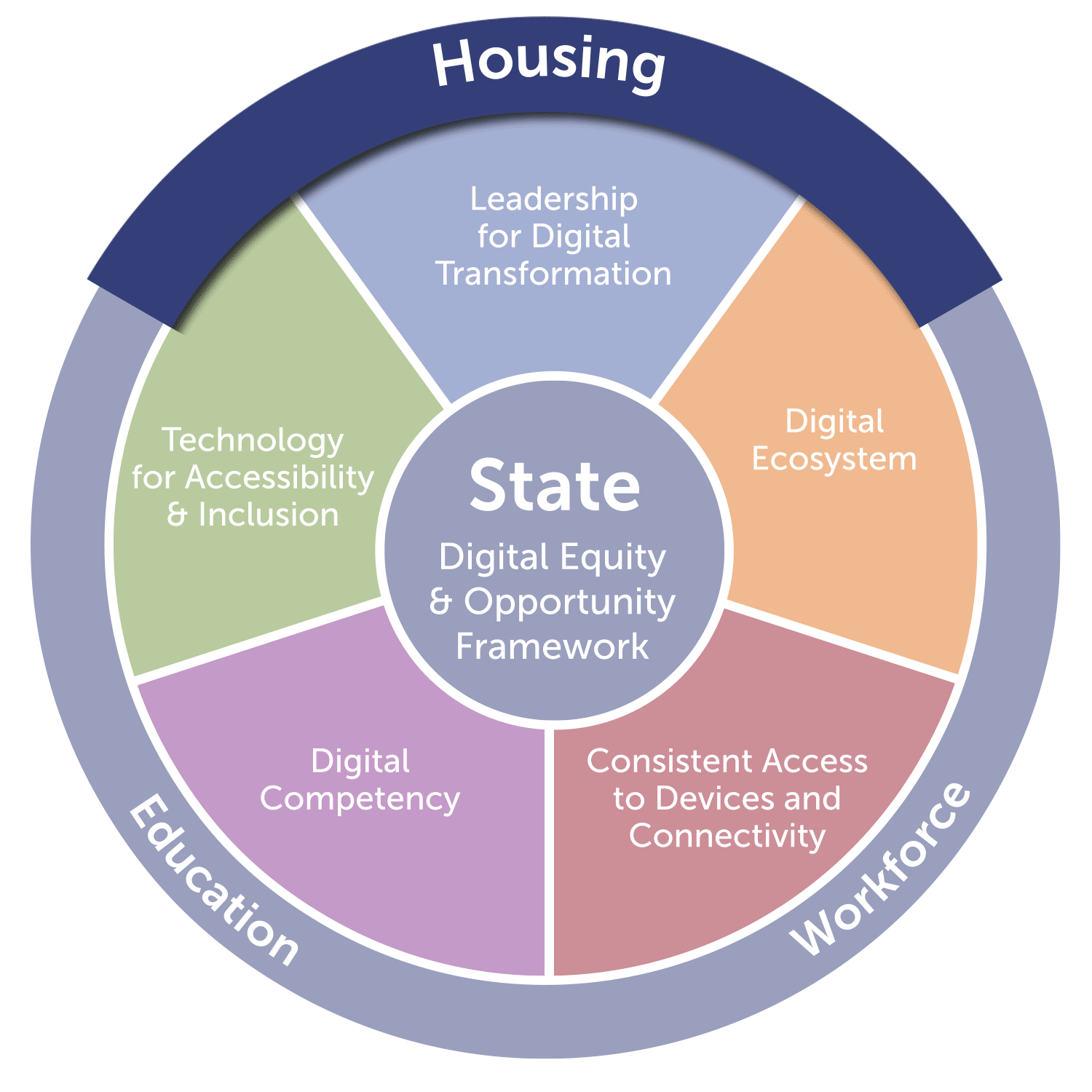As of 2023, the estimated population of the City of Durham, North Carolina, was 306,495. Durham is known for its diverse demographic composition, which included 40% White, 36% Black or African American, 10% Hispanic or Latino, and 5% Asian. The overall poverty rate in Durham is around 12.61 percent, with higher rates among Hispanic (24.01%) and Black (14.91%) populations.
The Durham Housing Authority (DHA) serves more than 4,200 families through its various programs. This included 1,201 public housing units and 3,078 Housing Choice Vouchers (HCV), also known as Section 8 vouchers, which assisted low-income families, the elderly, and individuals with disabilities in securing affordable housing.
The Durham Housing Authority (DHA) Campus Network Project was launched to provide high-quality, free in-unit internet access to DHA residents. These residents faced significant challenges in accessing affordable and reliable in-home internet. The initiative focused on leveraging municipal and private partnerships to connect residents to the City of Durham’s fiber broadband network, thereby addressing the high cost of internet services and ensuring digital equity.
 The DHA Campus Network Project is an exemplary model of a Digital Ecosystem in the Housing sector. Many residents of the Durham Housing Authority (DHA) could not afford the internet services offered by local ISPs, and existing account balances and credit requirements further restricted access to discounted programs. Additionally, DHA lacked the resources to fund a connectivity solution independently. To address this, they partnered with the City of Durham and nearby major universities to install Broadband Infrastructure in Multi-Dwelling Units (MDUs) to connect residents to the city’s broadband network. This partnership provided the necessary funds, project management, and technical resources to deliver Free Internet Access to Families in Affordable Housing across eight DHA public housing developments. This initiative not only improved digital access for residents but also demonstrated the power of collaborative efforts in bridging the digital divide.
The DHA Campus Network Project is an exemplary model of a Digital Ecosystem in the Housing sector. Many residents of the Durham Housing Authority (DHA) could not afford the internet services offered by local ISPs, and existing account balances and credit requirements further restricted access to discounted programs. Additionally, DHA lacked the resources to fund a connectivity solution independently. To address this, they partnered with the City of Durham and nearby major universities to install Broadband Infrastructure in Multi-Dwelling Units (MDUs) to connect residents to the city’s broadband network. This partnership provided the necessary funds, project management, and technical resources to deliver Free Internet Access to Families in Affordable Housing across eight DHA public housing developments. This initiative not only improved digital access for residents but also demonstrated the power of collaborative efforts in bridging the digital divide.
Through this collaboration, residents benefited from a robust and reliable internet connection, enabling them to participate in online education, work remotely, and access essential services such as telehealth. The project leveraged the existing city infrastructure and the expertise of local universities, showcasing a sustainable model for other housing authorities facing similar challenges. The elimination of financial barriers and the provision of technical support further ensured that residents could fully utilize the new network, significantly enhancing their quality of life.
Beginning in 2016, the Durham Housing Authority (DHA) regularly met with community groups and organizations, including Durham Public Schools, nonprofit organizations, and local universities, to advance digital equity for residents as part of the ConnectHomeUSA program. In their meetings, they assessed existing technologies and identified barriers preventing residents from accessing reliable and affordable broadband. Technical consultations and evaluations revealed that the City of Durham’s network had sufficient bandwidth to support DHA residents through a fiber network. The project required the construction of new fiber optic spurs to connect the network to the buildings and subsequently into individual units.
The onset of COVID-19 in 2020 spurred the team into action. The City of Durham allocated $1.4 million of its CARES Act funding to complete the project. DHA leveraged partnerships with local institutions, including Duke University and North Carolina Central University, to provide project management and engineering support. These partners conducted site surveys for the eight communities to determine site-specific storage, power, and hardware needs for fiber optic installation. By 2022, the project was completed, bringing WiFi to households across targeted affordable housing developments in the city. Furthermore, the WiFi access did not require a password, thereby further eliminating barriers to access for residents.
The success of the DHA Campus Network Project demonstrates the importance of a comprehensive, collaborative approach to addressing the digital divide, ensuring all residents have the connectivity needed to thrive in the digital age. The results include:
Despite these successes, obstacles such as lack of evergreen funding and insufficient personnel willing to offer pro-bono technical services could hinder the continuity of such a project that yielded significant benefits for an underserved population.